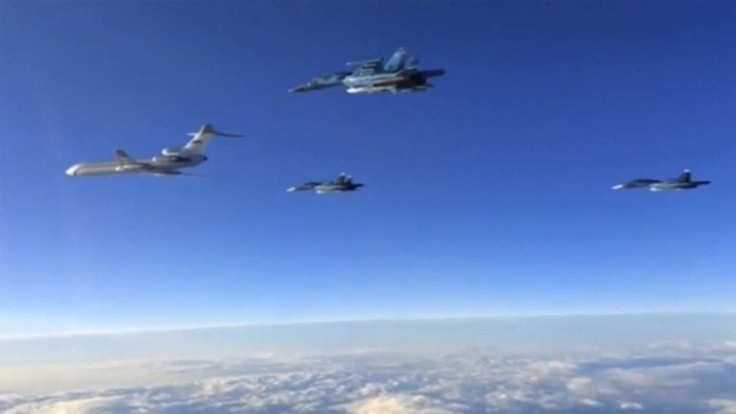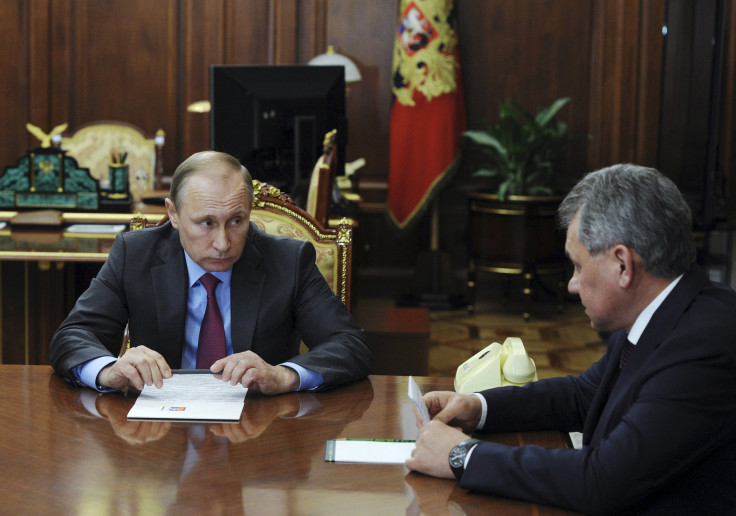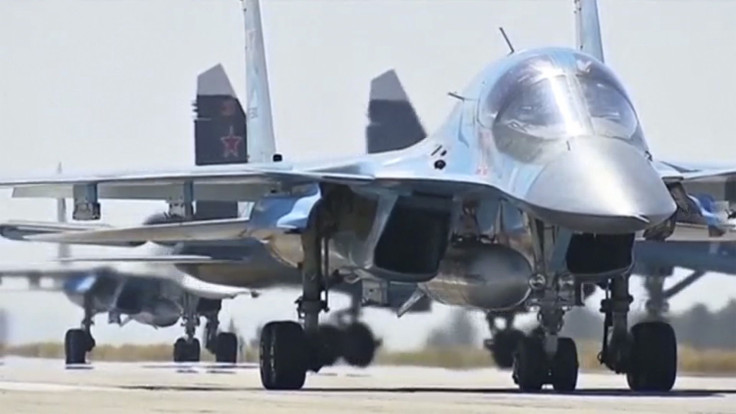Russian Pilots Returning From Syria Welcomed With Fanfare, Pomp

Russian pilots who led a five-and-a-half-month bombing campaign in Syria were greeted as heroes upon their return to a Russian air base Tuesday, a day after President Vladimir Putin ordered the withdrawal of the bulk of Russia’s military forces deployed in the war-devastated country.
The pilots were met by a large, flag-carrying delegation of senior officers as well as their wives and children after they touched down at an aerodrome near the southern Russian city of Voronezh. Some of the pilots were carried on the shoulders of their fellow soldiers, while others were given flowers and balloons.
The head of Russia’s air force, Gen. Viktor Bondarev, was present among the welcoming party and told pilots all their bombs had been on target, according to state-owned news agency RIA Novosti.
The hero’s welcome for the returning soldiers was shown live on state-owned television amid regular updates on the Russian jets departing in waves from their Syrian base and analysis of Moscow’s bombing campaign in Syria, which has been hailed as a triumph by Kremlin-friendly media and Russian officials.

Putin announced the surprise withdrawal Monday in a meeting with Foreign Minister Sergei Lavrov and Defense Minister Sergei Shoigu.
While Moscow maintains its military intervention in Syria has targeted only Islamic extremists, the bombing has dramatically bolstered the position of Syrian President Bashar Assad, a key Russian ally, in the country’s five-year civil war. Western countries have accused Russia of targeting moderate rebel groups opposed to Assad and of causing significant civilian casualties.
Despite the pullout, Russia’s Defense Ministry said Tuesday airstrikes on terrorist groups within Syria will continue.
“Certain positive results have been achieved. There is a real chance to end many years of confrontation and violence. But it’s too early to talk of victory over terrorism. Russia’s air force group has the task of continuing attacks on terrorist targets,” Deputy Defense Minister Nikolai Pankov told reporters at Russia’s Hmeimim air base in Syria as planes took off Tuesday, RIA Novosti reported.

While Putin said Monday that “most” units would be withdrawn, the exact numbers of Russian troops and military equipment to remain in Syria were not immediately clear.
Russia deployed about 50 aircraft to the country at the height of the bombing campaign.
Officials said Russia will retain control of its air base at Hmeimim and a naval facility at Tartus, which has been in Russian hands since Soviet times. A total of about 1,000 soldiers will remain in Syria, Russian news agency Interfax reported Tuesday, citing military and diplomatic sources.
Putin spokesman Dmitry Peskov denied Tuesday that the pullout is an attempt to pressure Assad to take a more conciliatory position in peace negotiations in Geneva between the Syrian government and rebel groups that got underway Monday. While Moscow has staunchly backed Assad through the regime's struggle against rebel groups, Russia appeared to express frustration with the Syrian leader for the first time last month.
Peskov refused to comment on the possibility of Russia returning jets to Syria if the situation on the ground changes.
As Russian media attempted to assess the results of the country’s bombing campaign, one presenter on the state-owned television channel Rossiya 24 told viewers Russian planes had flown 9,000 sorties since the start of the campaign in late September and killed more than 2,000 terrorists.
Pundits used by Kremlin-friendly media have been almost universally positive about the intervention, highlighting the ceasefire agreed to last month between the government and a majority of rebel groups fighting Assad.
More than 250,000 people have been killed in Syria’s five-year civil war and more than 5 million displaced, according to the United Nations.
The U.K.-based Syrian Observatory for Human Rights said this month 1,733 civilians, including 429 children, had been killed by Russian airstrikes, along with some 1,492 rebels and members of the al-Qaeda-affiliated Nusra Front, and 1,183 militants fighting with the Islamic State group.
© Copyright IBTimes 2024. All rights reserved.





















